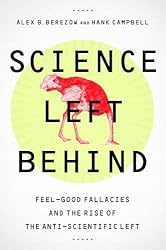 Grindhouse Wetware/Ryan O'Shea
Grindhouse Wetware/Ryan O'Shea
Would you douse a scalpel in alcohol and cut yourself open just for the purpose of implanting a piece of technology under your skin?
Probably not, but there is a community of people -- "biohackers" -- who do just that. And they may be important to the future of science and technology.
It's been a staple of science fiction, this technological augmentation, and in 1998, Kevin Warwick, Deputy Vice-Chancellor at Coventry University, even had an inch-long radio frequency identification device placed in his arm.
Why an RFID? It's not like he could comfortably put his arm up to a credit card machine in 1998, and no card reader would have read it. The real reason was just to do it. The first fax machine had no value, after all, and the first email couldn't write anyone else.
That's the essence of basic research and experimentation and it's something that President Eisenhower warned we would lose as government funding went from project-based -- a nuclear bomb -- to an entrenched culture. Yet only a generation later, another President who was suspicious of government control, loved funding basic research. He truly believed basic research was on a very short list of things government should be involved in at all.
In the modern era, we think about Big Science. That's the legacy of Ernest Lawrence, who launched the Military-Industrial complex that led to government control of 50 percent of research today. We had the Human Genome Project, a War on Cancer, and now we have the James Webb Space Telescope and yet another cancer "Moonshot." The current administration may be anti-nuclear but they it has been in love with nuclear bomb imagery; everything is a Manhattan Project of X.
But Big Science didn't give us CRISPR/Cas-9, which is going to be the breakthrough of the decade long after yet another Moonshot has faded away. Last decade was human embryonic stem cells (hESCs), which was so hyped California squandered $3 billion on it just to stick it to President George Bush for limiting federal funding to existing lines. Induced pluripotent stem cells (iPSCs) stole the show there. Even hESCs were "small" science, the technology was created without any federal government funding at all, because embryonic research was banned by President Clinton.
For that reason, it may be that the future of applied biology won't come from large drug companies, which are not going to touch anything that won't offset the billion dollars the government now mandates to survive approval. And it won't come from government funding, which, as we have seen with Zika and Ebola and plenty of other things, chases the science that is showing up in polls.
It may come from people who do things like grow an ear on their arm. That sort of insurrectionism is what William Gibson wrote of in "The Gernsback Continuum," not some happy world where no one works and information brings peace.
Why are small, independent Do It Yourself Biohackers important in a way that corporate or government-controlled scientists are not? Because there aren't many instances where a corporation can create something the public doesn't yet know they want.
When Steve Jobs announced the arrival of the Apple iPod in 2001 I was so disappointed I sold my stock; I already had four .MP3 players and they were great, and I had bought into the company when Jobs returned because I expected big things from him. It turned out that Jobs understood that the public didn't know they wanted iTunes yet, and iTunes is what separated his music player from the hundred that preceded it, not the iPod itself.
Most often, these things start small and then smart companies find a way to make them mass consumer products. It may seem strange to implant a magnet that will do nothing but allow a tingle near an object it is supposed to sense, but these private tinkerers stand a chance of making a breakthrough in stopping memory decline or communicating by thought that a large company and certainly a government funding committee would dismiss.



